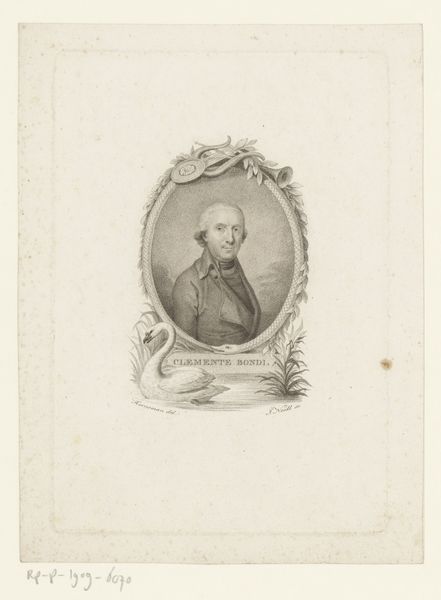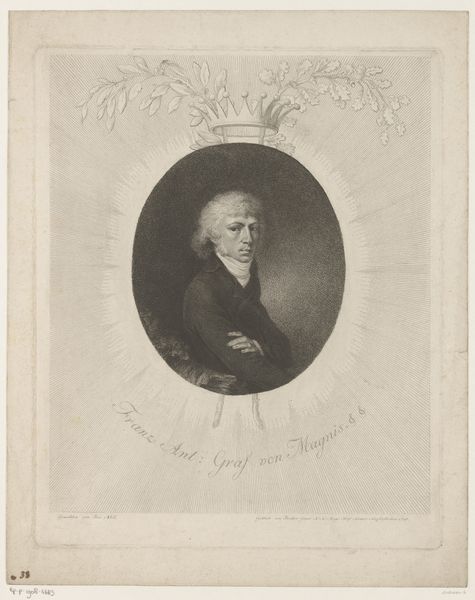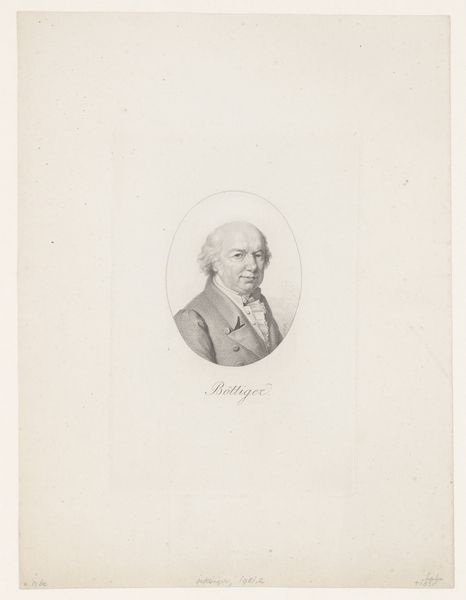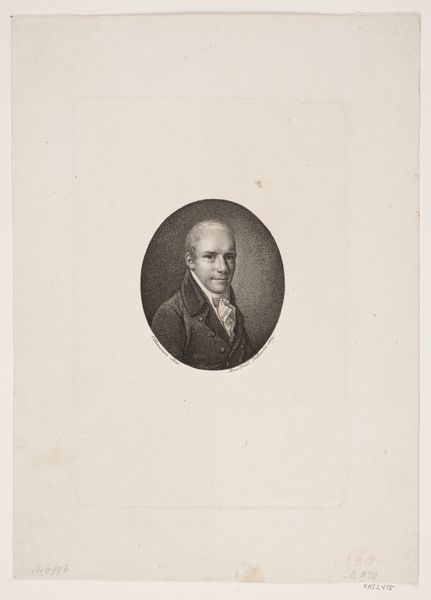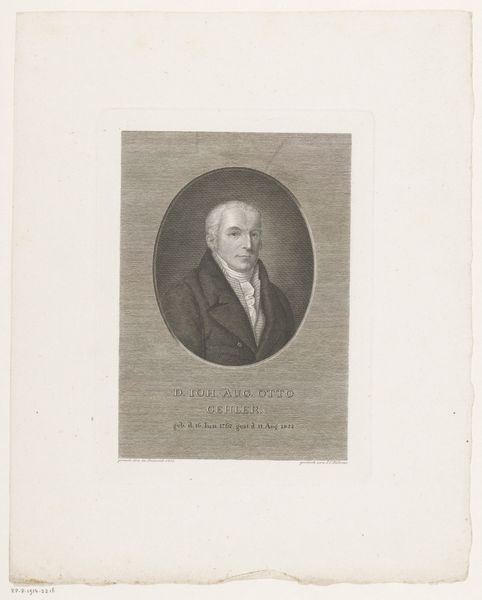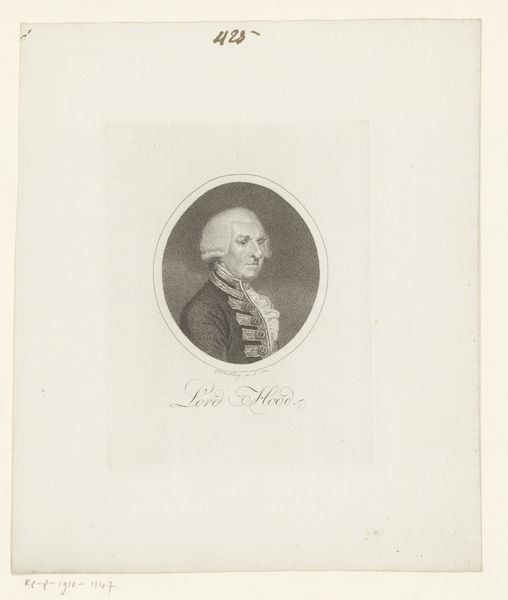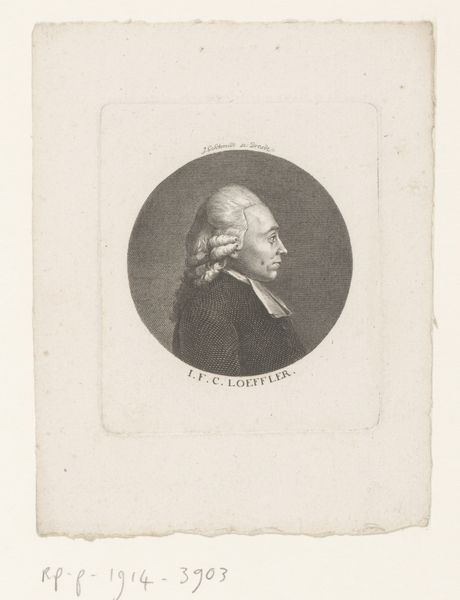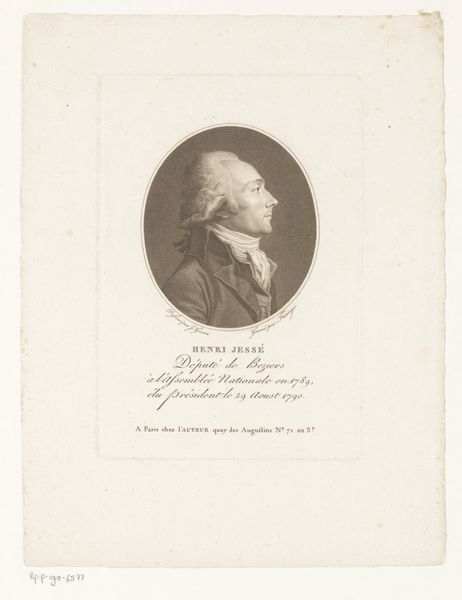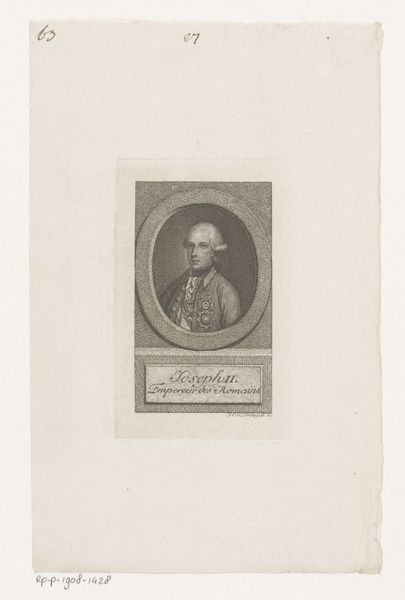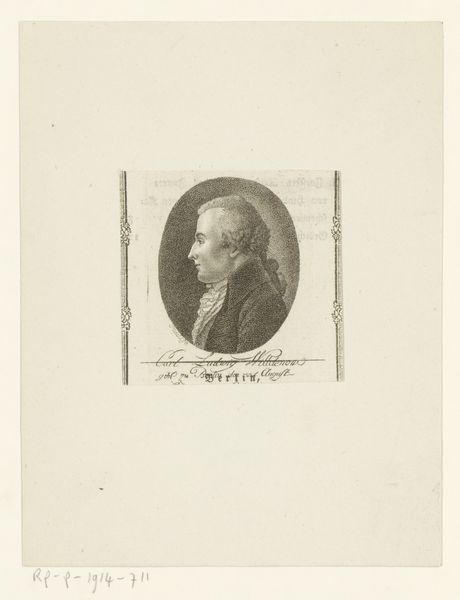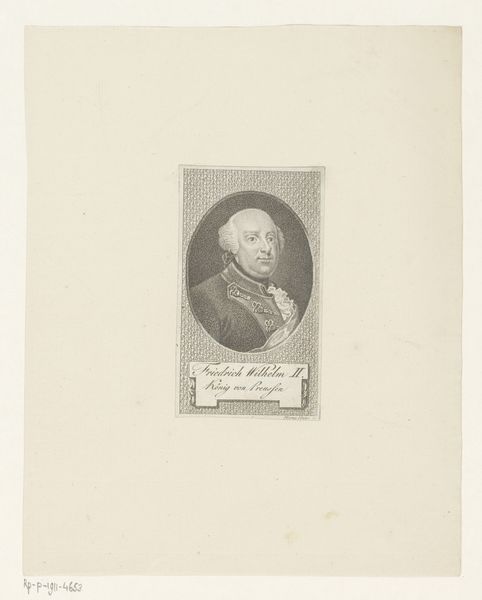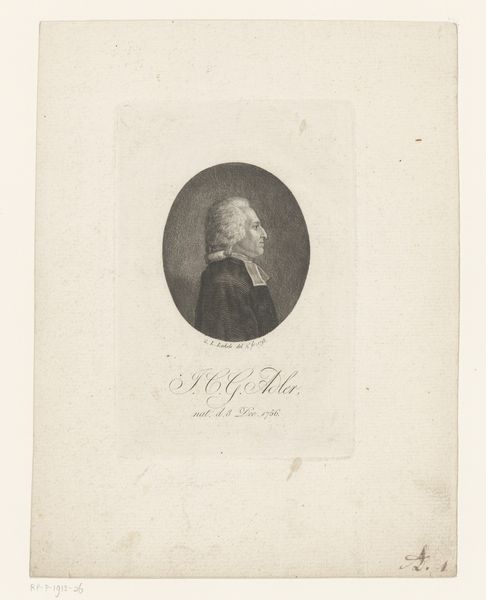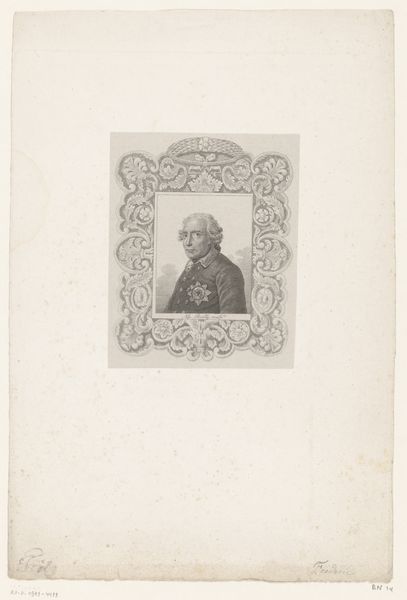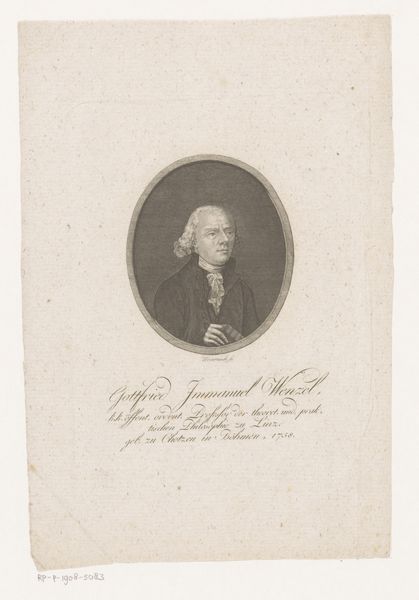
print, engraving
#
portrait
#
neoclacissism
# print
#
old engraving style
#
history-painting
#
engraving
Dimensions: height 114 mm, width 106 mm
Copyright: Rijks Museum: Open Domain
Johann Jakob Wagner made this portrait of Christoph Jeremias Rost using etching, a printmaking technique that dates back to the Middle Ages. To create the artwork, Wagner would have coated a metal plate with a waxy, acid-resistant substance, then scratched an image into it using a fine needle. The plate was then immersed in acid, which bit into the exposed lines, creating grooves. Ink was applied to the plate, filling these grooves, and the surface was wiped clean. Finally, the image was transferred to paper under high pressure, producing the print we see here. The precision and detail achieved through etching speak to Wagner's skill and the time-consuming nature of the process. Each line meticulously placed contributes to the overall texture and form of the portrait. While etching allowed for the reproduction of images, making art more accessible, the labor involved highlights the contrast between artisanal production and the rise of industrial capitalism. By focusing on the materiality and making of the artwork, we gain a deeper appreciation for the technical skill involved, its social context, and its place within broader histories of art and craft.
Comments
No comments
Be the first to comment and join the conversation on the ultimate creative platform.
